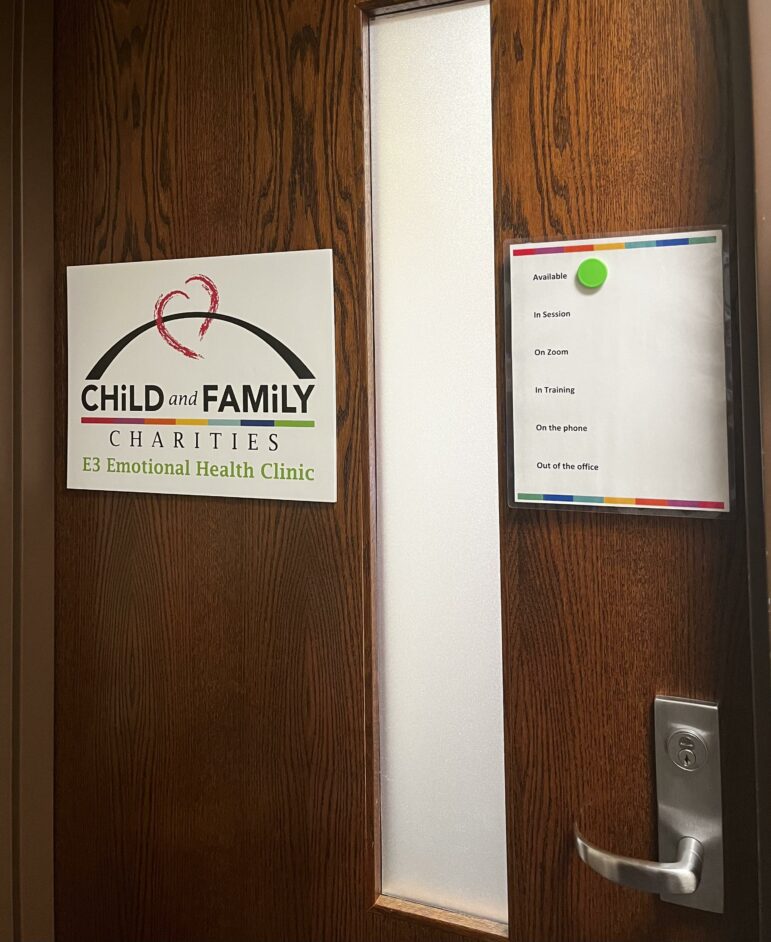In her initial two years as the sole therapist at Waverly High School, Anna Piazza conducted 1,452 therapy sessions with students.
As part of the Expanding, Enhancing Emotional Health (E3) Program, Piazza, a therapist from Child and Family Charities, serves as a resource for students grappling with mental health issues.
Mental health issues among adolescents are on the rise. According to the CDC, in 2021, over 42% of students reported persistent feelings of sadness or hopelessness, with nearly 29% experiencing poor mental health. Additionally, in 2021, 22% of students seriously considered attempting suicide and 10% attempted suicide.
“These students are really resilient, strong, smart, capable individuals,” Piazza said. “Sometimes life will just tear you down and so sometimes you need to have somebody.”
In her role at Waverly, she provides goal-oriented therapy to students aged 5 to 21, with the majority of her caseload being high school students.
Starting in 2021, Piazza has been serving students in the on-site clinic at the high school, extending her services to accommodate teletherapy when the school is closed.
How it works
The clinic is funded by a grant provided by the Michigan Department of Health and Human Services (MDHHS). Nonetheless, they bill insurance companies, allowing the clinic to potentially become self-sustaining if the funding ends.
“We will never turn away a student if financial reasons are a barrier,” said Kelly Haynie, the E3 coordinator for Waverly High School. “If financially it isn’t feasible, Child Family Charities will cover that cost.”
They also adhere to Michigan’s minor consent law, which permits minors aged 14 years and older to consent to mental health treatment without parental approval, with a limit of 12 sessions or four months.
“That has definitely helped with breaking down stigma because it helps this generation of students to be able to start getting mental health services, even if the generation older isn’t agreeing with that in the home,” Piazza said. “We’re not trying to hide anything from parents. It’s just more getting the ball rolling with the student when they’re really in need.”
While the grant exclusively funds one therapist to work at the school, Piazza said that managing the role amid high demand can be challenging. However, Piazza recently welcomed an intern to the team, which both lightened her workload and enriched her learning experience.
“It’s so exciting to be able to teach and then I also learned from my intern because she brings different and new things to the table.”
Meet Anna Piazza
Although she always knew that she was passionate about making people feel heard, it wasn’t until taking an introductory course in social work at Calvin University that Piazza discovered her true calling.
“Social work is great. It really capitalizes on values like dignity and worth of every person and understanding them in human relationships,” said Piazza.
After graduating with a master’s in social work from Fordham University, she seized the opportunity to become a therapist and was pleasantly surprised by how much she came to love it.
“I like high schoolers because they’re developing into their own person, but they’re still willing to see and change,” she said. “Maybe more willing than older folks.”
She is trained in solution-based and trauma-focused therapy and works towards helping students identify and regulate emotions and heal from trauma.
“I do a lot of cognitive behavioral therapy, which is challenging unhelpful thoughts and replacing them with more helpful thoughts,” said Piazza. “It’s not like we erase the past. There’s still maybe some hurt from the past, but we work on healing from the past so that there’s less heavy coping that we have to do.”
Piazza has discerned various trends among her students, including issues related to family conflicts, self-esteem, anxiety, depression, PTSD and trauma.
Of those students who completed the satisfaction survey, 92% would recommend Piazza’s service to their friends.
“Anytime that I have a student in my room, they are the most important person to me on the face of this planet,” she said. “My job for one hour a week is to throw as much focus and care to this person as possible. And I don’t do that to be nice. I do that because they deserve it.”

Courtesy of Anna Piazza
The door of Anna Piazza’s office at Waverly High School. Students can schedule sessions therapy sessions with her for mental health support.